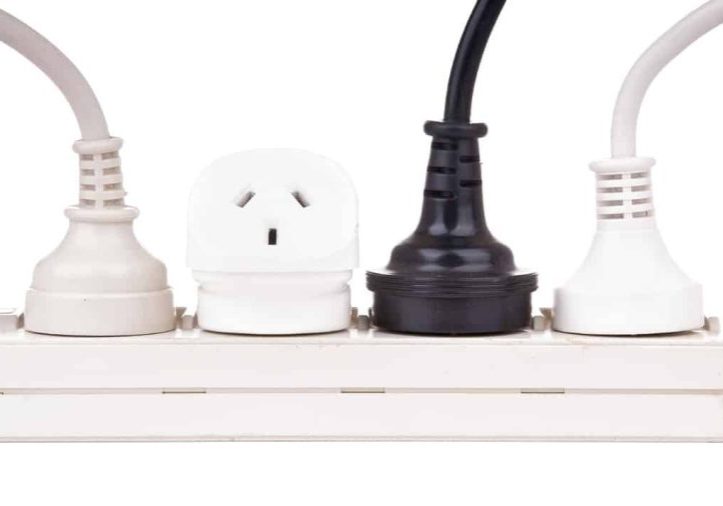Using power boards can be a convenient and cheap way to increase the number of power points in your home. They are readily available in almost every shop from Bunnings to Kmart, they are cheap, easy to use and avoid you the hassle and cost of having to ring your electrician to come and install more power points around your home. Sounds like they tick all the boxes right? Wrong!
1. Power boards should always be a temporary measure only
Poor maintenance of power boards and overloading these is a common cause of preventable house fires. That is why to comply with OSH regulations power boards in a work place environment, should be tested and tagged (along with other electrical appliances) on a regular basis.
2. Overloading power points
The power point the power board gets plugged into, wasn’t designed to handle multiple appliances, especially not several high wattage appliances such as kettles, toasters, laptops etc
3. Piggy backing by using adaptors
Believe it or not, but it is quite common for people to piggy back power boards by using double adaptors. Power boards have a maximum current rating which should not be exceeded. If exceeded, this can be dangerous because the electrical circuit is now overloaded.
4. Power boards are unsightly
Unless power boards are hidden under sofas or behind furniture they present an unsightly mess of cables and not to mention a tripping hazard.
The easiest way to ensure your home stays safe is to contact the friendly team at Volt Air to discuss having extra power points installed in your home. We can easily swap out double power points for quad power points. We can also install double or quad power points with in built USB points. These are really handy because they no longer require you to use unsightly and bulky adaptors.
In any case, don’t hesitate to reach out to our friendly team today to discuss your power needs.
